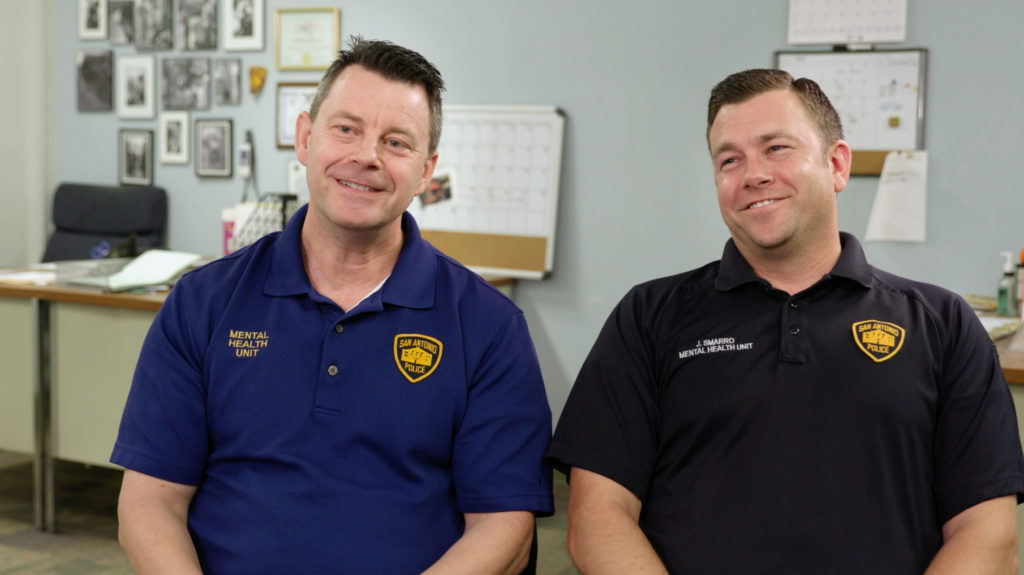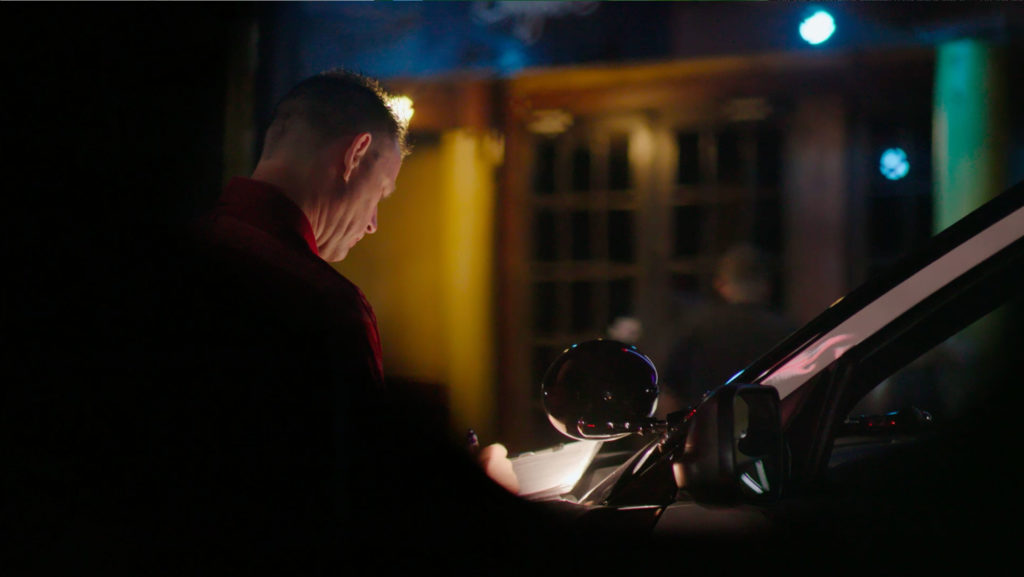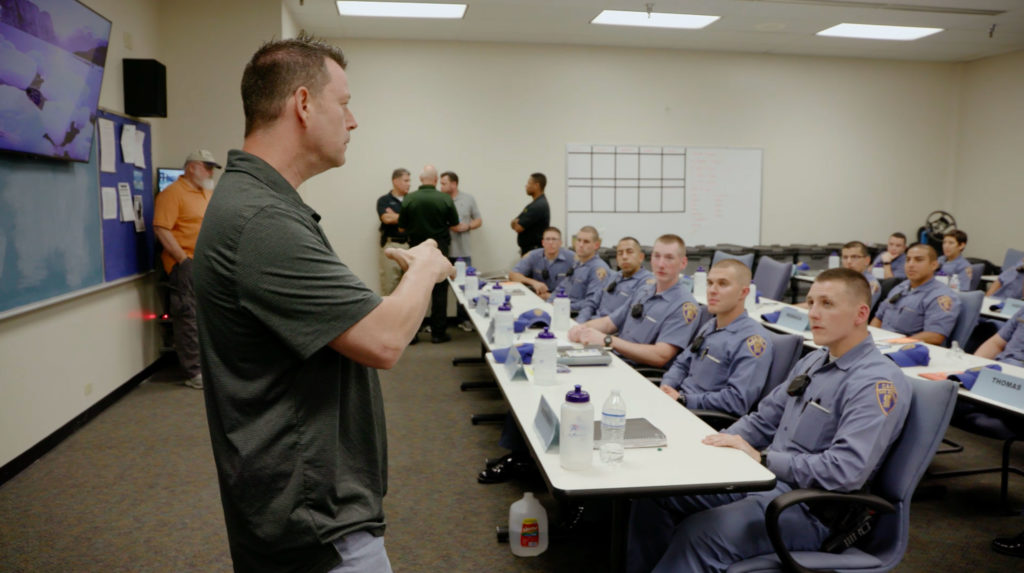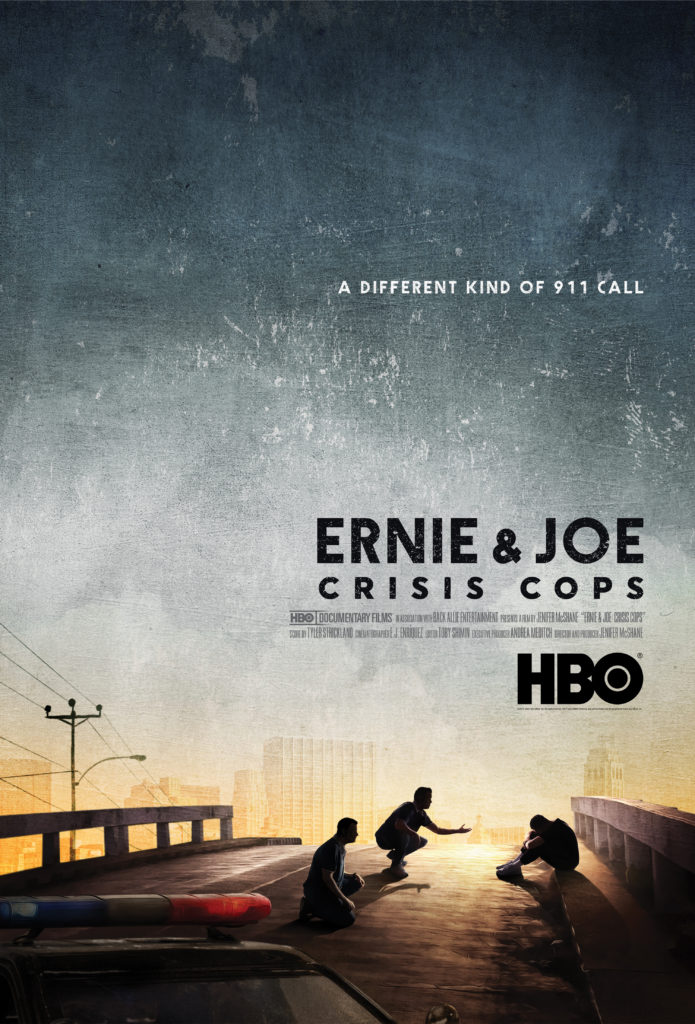Mental Health Treatment Instead of Jail
In the United States, one in four people shot by a police officer has a serious mental illness, as do almost 25% of jail inmates and 15% of state prison inmates. Police officers have increasingly become first responders to people experiencing a mental health crisis, even though they have few effective tools for dealing with them.
In San Antonio, under government auspices, the mental health and law enforcement communities formed a coalition to help the mentally ill find help, and support them when they do. The documentary film ERNIE & JOE: Crisis Cops shows the ways in which San Antonio has changed its approach to training and policing, and its impact. Throughout the film, Officers Ernie Stevens and Joe Smarro illustrate best practices that should be a part of any crisis response model, providing examples of the vital changes needed to reduce violence against, and incarceration of, people with mental health challenges, reduce stigma, and create safer communities for all.
ERNIE & JOE: Crisis Cops brings uncomfortable issues to the table and provides other communities a road map to improve communication, empathy, and awareness in providing support to those in crisis.
The ERNIE & JOE: Crisis Cops national outreach campaign offers audiences of law enforcement personnel or agencies, mental health advocates, those with lived-experience, government officials, health care workers, and social workers an opportunity to witness up close a positive model of compassionate crisis response. The documentary prompts these audiences to reflect upon crisis response in their own communities and what changes they would like to see realized.
Jenifer McShane’s much-needed documentary, ‘Ernie & Joe: Crisis Cops’, is the right movie at the right time. Imagine there’s someone in your family acting strange, someone who may hurt themselves because of their state of mind, and you dial 911 and instead of a ton of cops showing up with guns drawn, who appears are two officers from the mental health crisis unit – no guns, just psychology, and a little kindness. Ernie and Joe, two cops from San Antonio, have a better idea, and this heartfelt documentary shows the country that there is a way out of the police insanity we’ve been witnessing for far too long. This film gave me a huge bowl of hope.
Michael Moore, Documentary Filmmaker
There is a much greater spirit of cooperation between various stakeholders who became aware of each other through the film screening and panel discussion. It feels as if there is new hope in the air, that some previously intractable problems now have the possibility of finding solutions
Vicky Sigworth, Family to Family Instructor, Elm City NAMI




Outreach Campaign Milestones:
- 93,000 film trailer views
- 180 facilitated screenings and discussions with law enforcement, community groups, behavioral health organizations, government officials and social services agencies
- Over 1000 law enforcement and public safety officers have registered for free streaming access to the film, and promised to show the film to over 70,000 personnel
- Over 1300 people attended the March 8, 2022 National Alliance on Mental Illness kick-off webinar of “Help Not Handcuffs: A Day in the Life”
- In honor of National Suicide Prevention Month, the Department of Justice/Bureau of Justice Assistance published the blog, Mental Health Law Enforcement, and Communities: What’s Next?, which endorsed the film’s outreach efforts, stating that the film is meeting the “tremendous need to continue reflection, dialogue, and action…Ernie & Joe: Crisis Cops and its national engagement campaign provide an opportunity for this much-needed community conversation”
- The University of Alabama School of Social Work incorporated clips from the film into their newly created Remind Training to illustrate real-life scenarios. This partnership between the School of Social Work, the University of Alabama Center for Advanced Public Safety, and the Tuscaloosa Police Department provides law enforcement with a new perspective on how to handle a variety of crisis situations while in the field
- Inspired by the film, The Stillwater Police Department and the Oklahoma State University Police Department created the community’s first-ever Crisis Intervention Team
- Over 200 educational institutions of higher learning across the world have purchased the film for use in their communities
Having an officer trained in … de-escalation techniques, knowing what resources are available and knowing the ins and outs of getting folks in need connected to those resources and then following up … to ensure they are getting what they need is key in helping the mentally ill.
Captain Royce Stephens, Stillwater Oklahoma Police Department
It really is a remarkable film—beautifully shot and edited, and a wonderful story of what good, humane policing looks like.
Kevin Morison, Chief Program Officer, Police Executive Research Forum
The screening we hosted continues to be one of the most important events we have held recently. We have continued to strengthen both our crisis response and focus on officer wellness. We have updated policies to reflect how we operate currently, and in turn received One Mind Pledge campaign credential from the International Association of Chiefs of Police. I now have complete buy-in from my department.
Chief Elliott Moya, Eliot Police Department, Eliot, Maine